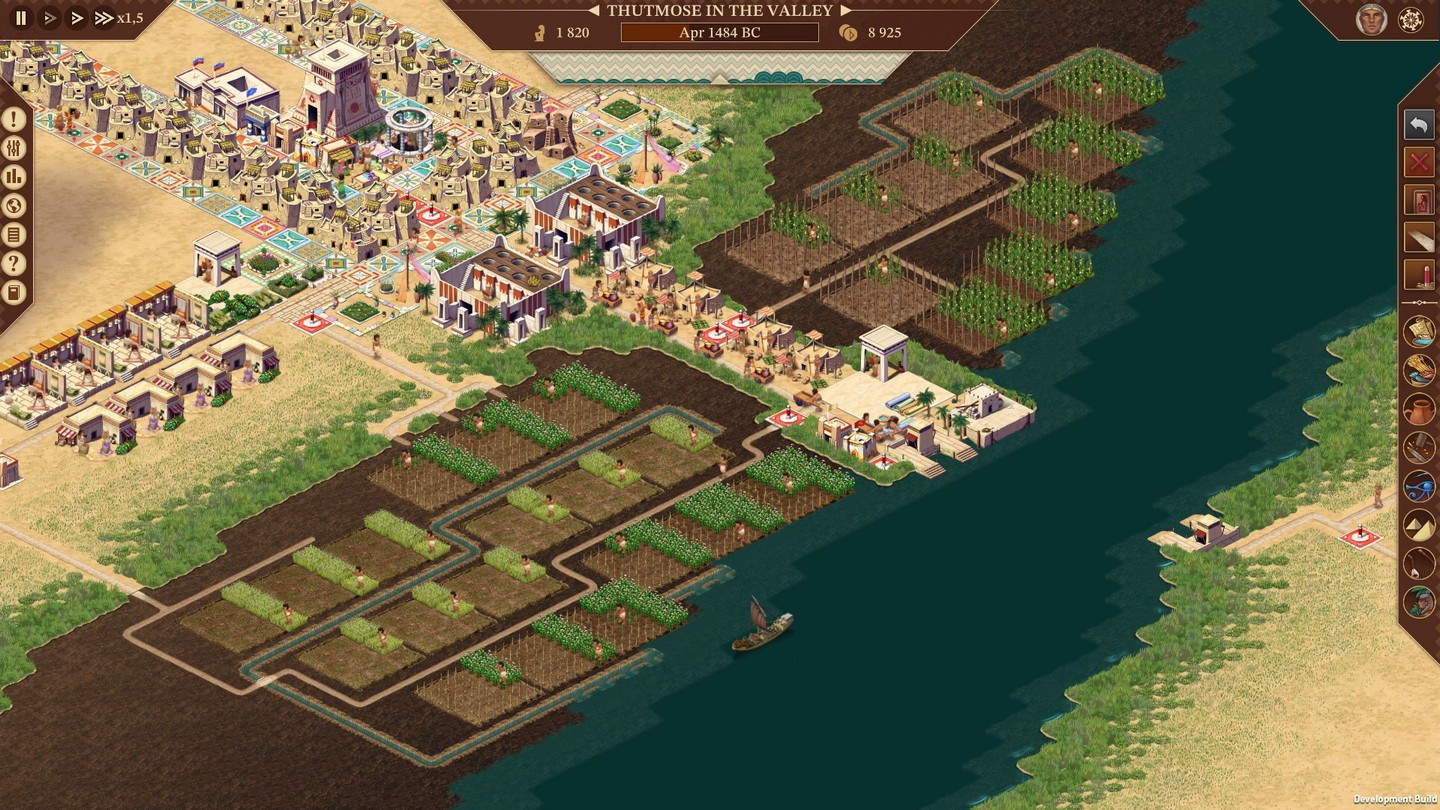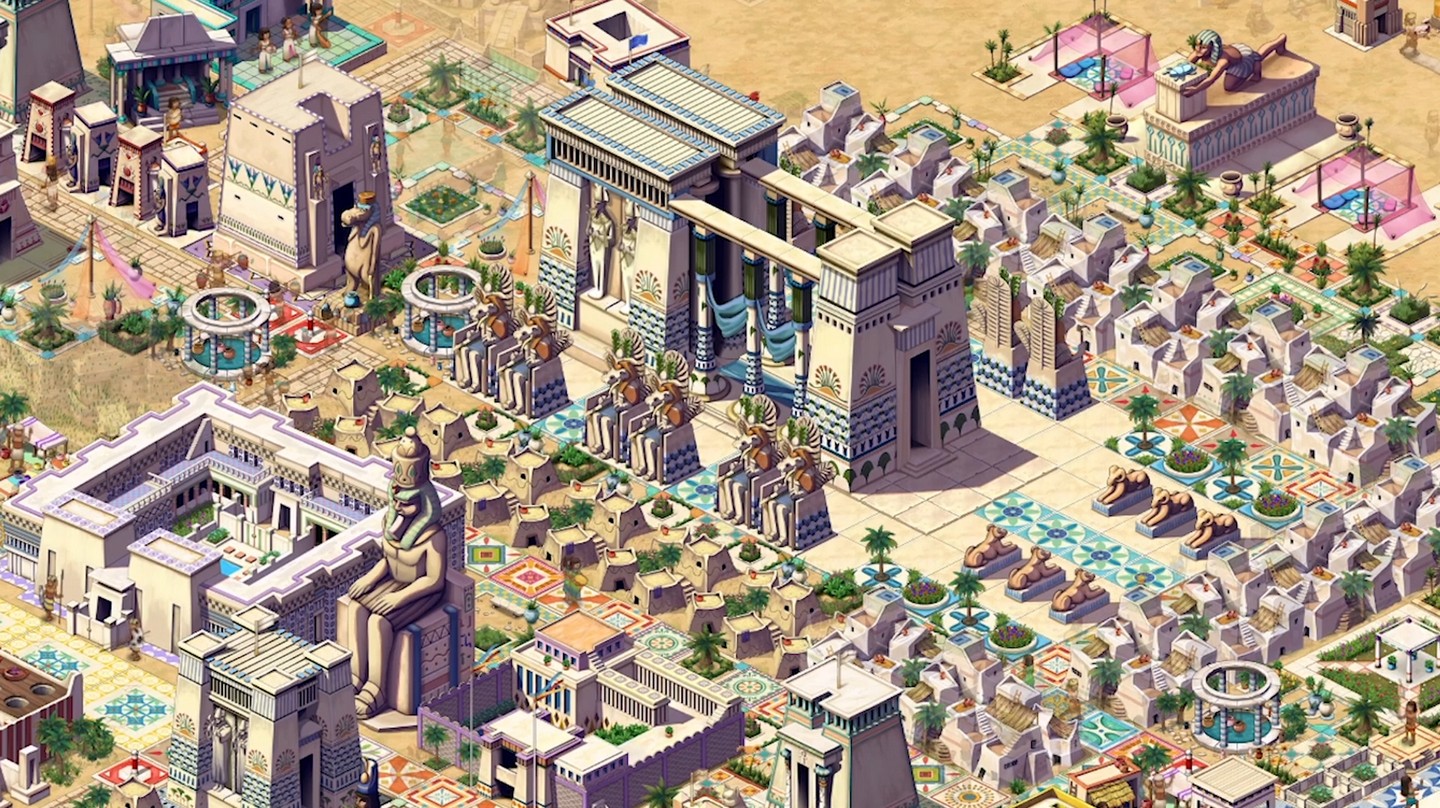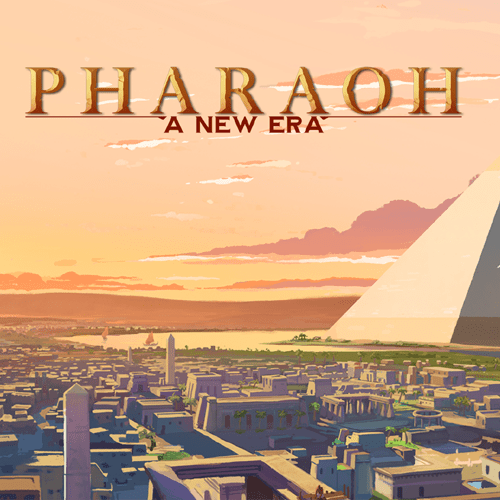SATISFYING YOUR TEMPLE COMPLEX
For those who are familiar with Impressions Games’ original Pharaoh – rest easy. Combat has been completely redesigned and dancers no longer get lost in the city’s streets.
For those who are new – rejoice! In his infinite wisdom, mighty Pharaoh has selected your family to be the architects of his dynastic rule. Excel at this task and you will one day see your descendants seat the throne of Egypt’s mightiest kingdom.
Impressions’ Games Pharaoh is the city builder I grew up with. To see it playable again now in 2023 is a treat, and Dotemu and Triskell have done it justice. First impressions (ha ha) of A New Era shows that the broad strokes in gameplay are identical to the original, which can be for better or for worse. Pharaoh was a solid title in the 90s (once you got familiar with its mechanics) and I find myself constantly tabbing back into New Era to play just one more mission instead of finishing writing this review.
What sets Pharaoh: A New Era apart from other city builders is its emphasis on dynasty. More than raising a single city built to completion, A New Era is a game of the kingdom of Egypt as a whole. From the earliest settlements to the rule of the late great Cleopatra, New Era’s campaign carries players through Egypt’s building its greatest cities and constructing its most famous monuments.

MRSP: $22.99
PLATFORMS: PC
PRICE I’D PAY: $22.99
A New Era opens with a gorgeous hand-drawn intro cinematic, eclipsing the 90’s pre-rendered CG cutscenes that no one was asking to make a return. At the launch of the first mission my heart clenched in fear that the voiced intro narrations had not been in budget, but I was happily proven wrong. What originally was presented as spoken in text before entering the mission is now played within the scenario itself, re-recorded; though the likewise previously voiced outro narration did not survive the leap to 2023.
At time of writing a few features of the original Pharaoh are absent, though none are critical deal breakers.The ability to rotate the map didn’t make the cut, and the Minimap has been promised for a future update. In place new features have been added that massively improve Pharaoh’s quality of life, such as highlighting where walkers will enter and exit structures before placement and surfacing your current employment rates on the active UI. A few missions into the campaign and players will also be prompted to switch from the original game’s walker-based recruitment system to New Era’s global labour pool option, an option I recommend new players begin with as it is far more forgiving and more in line with what you would expect from modern city builders. Try switching back to recruiters for additional challenge down the road.
(For those interested in why global labour pools are an improvement, look no further than the university-published 30-page thesis: ‘Ambulomancy: Predicting Roaming Walks in Pharaoh.’ which goes deep into dissecting Pharaoh’s pathfinding logic.)
Gameplay revolves around a progression of cities throughout Egypt’s history. City building ability is put to the test as players contend with balancing the needs of the people, Pharaoh’s endless demands for goods, the capricious whims of the gods, and open warfare with the neighbouring nations. Financials are but a means to an end; Prosperity is the metric of a successful city and the people of Egypt cannot live on debens alone. Scenarios rarely give access to everything needed and poor planning will bring the city to ruin long before the Bedouin or Canaanites can get to it first.
Each scenario completed contributes to Egypt’s overall kingdom growth. Exports from one city become imports accessible to future ventures. Wars previously fought in the first hand become destinations to dispatch future troops. Pharaoh rewards timely dispatches appropriately, and currying the god’s favour can make all the difference for a prosperous city.

Pharaoh and by extension A New Era is by no means easy to penetrate, but it offers great reward to those who master its systems. The learning curve is steep, something returning players have already hurdled while new players will have to overcome. Thankfully New Era’s UI is a colossal improvement over the original, doing a far better job with its UX while still keeping the original’s design choices.
Players will need to familiarize themselves with the Overseer menus as early as possible as they provide the keys critical to a successful city. I promise you that you WILL forget to check the ‘Overseer of the Temples’ panel, and the enraged gods will not be kind about it. A single food or luxury good shortage can spell the end of the city as the population moves out in droves and the subsequent labour loss destroys any hope of recovery. I recommend starting monuments early to avoid sitting at 5X speed for fifteen years beyond having met all of a city’s other goals.
After becoming familiar with its systems, Pharaoh offers tremendous city building flexibility and a plethora of challenges unseen in any other city builder. A New Era has introduced numerous quality of life features found in contemporary city building titles to an already solid classic. From sandbox to successive dynasties, with new options to tune the game to your playstyle introduced, Pharaoh: A New Era beyond satisfies.
Review copy of game provided by publisher.

